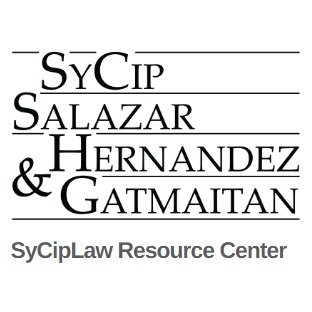Best Employment Benefits & Executive Compensation Lawyers in Makati City
Share your needs with us, get contacted by law firms.
Free. Takes 2 min.
List of the best lawyers in Makati City, Philippines
Philippines Employment Benefits & Executive Compensation Legal Questions answered by Lawyers
Browse our 1 legal question about Employment Benefits & Executive Compensation in Philippines and read the lawyer answers, or ask your own questions for free.
- The company I previously worked with said that I should submit my notarized quitclaim document before they give me my final paycheck. I witnessed that they did this to the previous employees too. Is that right?
- I am about to claim my final paycheck, and they emailed me a quitclaim form and gave instructions that I should submit this before claiming my final paycheck. I reviewed the quitclaim, and I am uncomfortable submitting it before reviewing my final paycheck to ensure I am compensated correctly.
-
Lawyer answer by Recososa Law Firm
Hello:What you are experiencing is a very common concern among employees in the Philippines. Under the Labor Code, your employer has the obligation to release your final pay which normally includes unpaid wages, pro-rated 13th month pay, and any unused...
Read full answer
About Employment Benefits & Executive Compensation Law in Makati City, Philippines
Employment Benefits & Executive Compensation law in Makati City is a specialized area of legal practice focusing on the structure, application, and enforcement of employment benefits, such as pension plans, health benefits, bonuses, stock options, and executive pay packages. The city, being a major business hub in the Philippines, sees a heightened need for robust legal frameworks and advice in this area to ensure compliance with local employment laws and to protect the rights and interests of both employees and employers.
Why You May Need a Lawyer
Engaging a lawyer specializing in Employment Benefits & Executive Compensation can be crucial in several scenarios. These can include negotiating or drafting employment contracts, dealing with disputes over compensation, handling compliance issues with local regulations, and designing compensation plans that align with legal requirements. Legal assistance can also be essential when dealing with cases of alleged discrimination or wrongful termination related to benefits and compensation.
Local Laws Overview
The legal landscape in Makati City concerning Employment Benefits & Executive Compensation is primarily governed by the Labor Code of the Philippines. This includes laws on minimum wage, termination pay, mandatory benefits like 13th-month pay, leave credits, and other statutory contributions. Additionally, corporate governance principles, tax laws, and regulations on executive compensation packages also play a significant role. Companies must comply with local legislation while also considering international standards if they operate on a multinational level.
Frequently Asked Questions
What are the mandatory employee benefits in the Philippines?
Mandatory benefits include Social Security System (SSS), PhilHealth, Home Development Mutual Fund (Pag-IBIG), and 13th-month pay, among others.
Are there specific laws regulating executive compensation?
While the Philippines does not have laws specifically targeting executive compensation, corporate governance principles and general labor laws influence how these packages should be structured.
Can employers implement flexible benefit plans?
Yes, employers can implement flexible benefit plans, but they must ensure compliance with existing labor laws and fair labor practices.
How is overtime pay calculated?
Overtime pay is calculated as 125% of the employee's regular hourly rate for work performed beyond the standard 8-hour workday.
What processes are involved in resolving disputes about benefits?
Disputes can be resolved through internal mechanisms, mediation, conciliation, or, if necessary, litigation in labor courts.
Is 13th-month pay taxable?
The 13th-month pay is tax-exempt up to a certain ceiling. Amounts exceeding this are subject to tax.
What should I do if my employer doesn't provide mandatory benefits?
Employees can file a complaint with the Department of Labor and Employment (DOLE) to address such issues.
Can compensation agreements be challenged?
Yes, compensation agreements can be challenged if they violate labor laws or statutory entitlements.
What is the importance of non-disclosure agreements in compensation contracts?
Non-disclosure agreements are crucial for protecting sensitive information about compensation structures from being disclosed to unauthorized parties.
Is there a cap on executive compensation levels?
While there is no official cap, excessive compensation packages are scrutinized in line with corporate governance and fairness principles.
Additional Resources
For more information, individuals can consult the Department of Labor and Employment (DOLE) for guidance on labor laws. The Securities and Exchange Commission (SEC) can provide information on corporate governance related to executive compensation. Various legal aid organizations and law firms in Makati City also offer counsel and representation in employment-related issues.
Next Steps
If you require legal assistance in employment benefits and executive compensation, it is advisable to consult a lawyer or a legal expert specializing in this field. Ensure the professional is familiar with both the local and national employment laws. Initial consultations can provide an understanding of your issues and the potential paths to resolving them. Maintaining documentation related to your employment and benefits arrangements can also be crucial for your case.
Lawzana helps you find the best lawyers and law firms in Makati City through a curated and pre-screened list of qualified legal professionals. Our platform offers rankings and detailed profiles of attorneys and law firms, allowing you to compare based on practice areas, including Employment Benefits & Executive Compensation, experience, and client feedback.
Each profile includes a description of the firm's areas of practice, client reviews, team members and partners, year of establishment, spoken languages, office locations, contact information, social media presence, and any published articles or resources. Most firms on our platform speak English and are experienced in both local and international legal matters.
Get a quote from top-rated law firms in Makati City, Philippines — quickly, securely, and without unnecessary hassle.
Disclaimer:
The information provided on this page is for general informational purposes only and does not constitute legal advice. While we strive to ensure the accuracy and relevance of the content, legal information may change over time, and interpretations of the law can vary. You should always consult with a qualified legal professional for advice specific to your situation.
We disclaim all liability for actions taken or not taken based on the content of this page. If you believe any information is incorrect or outdated, please contact us, and we will review and update it where appropriate.
















